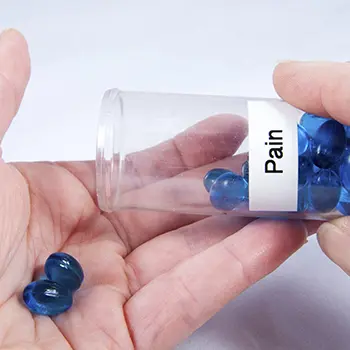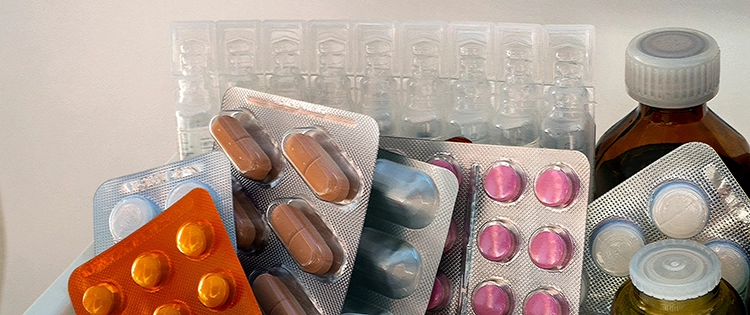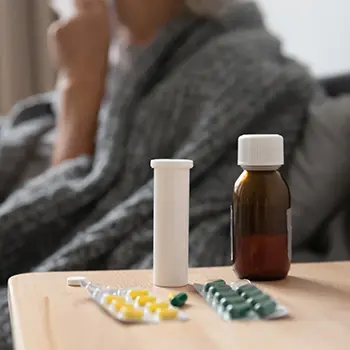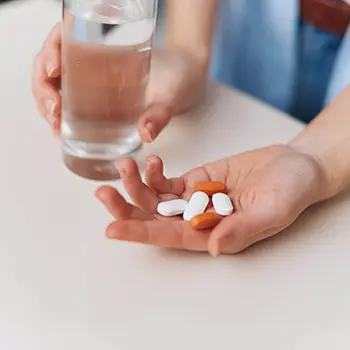In an emergency or grid-down scenario, pharmacies are generally the first establishments targeted for looting. Unfortunately, this has been seen numerous times during natural disasters, riots, and other public outbursts.
So, what can you do if you can’t safely get to your local CVS to get the medicine you need to survive?
Being prepared means stocking up on all the items you may need should you find yourself in a precarious situation, that includes medications that can save your life.
While everyone will require different things, there are some items that should always be held in your stockpile.
Over-the-counter medications, or OTCs, are the easiest medicines to get your hands on as they do not require a prescription. Thus, OTC medications should be added to your stock early and rotated regularly.
Pain Medications
While OTC pain medicines are generally less effective than prescription painkillers, they can help alleviate some of the side effects of injury and take the edge off.
OTC pain medications include Tylenol, Advil, or Naproxen, which treat pain and inflammation.
Although these medications are prevalent, and you may have a small supply on hand, chances are you do not have a significant stockpile – though you should. These medications are commonly overlooked or understocked by homesteaders.
Furthermore, even if you have some stored in your preparedness kit, you can quickly run out if you are injured or under stress. Having too much medication is always better than not enough.
Antiemetics
Antiemetics are anti-diarrhea and anti-nausea medicines. These include products such as Pepto Bismol and Imodium.
In an emergency, you are more likely to encounter contaminated water that can lead to an upset stomach. Additionally, nausea or diarrhea may be caused by a change of diet. Regardless of the cause, these medications can be a lifesaver and should be a part of your stockpile.
Storing these medications in pill form rather than liquid whenever possible is better. It is also a good idea to stock some stool softeners and laxatives.
Cold And Flu Medicine
Treating a cold or flu is something we often take for granted. When we feel a cold coming on, we run out to the pharmacy for some Sudafed. However, these simple trips may not be safe or possible in an emergency. Therefore, stocking some cold and flu medication is a good idea so that you have it available when you need it.
Antibiotics
In any emergency, infection poses the most significant risk to your health and safety.
Typically, if we get an infection, we visit the doctor, take some antibiotics, and continue unfazed. Unfortunately, an infection can quickly become severe without a doctor or pharmacy access. Furthermore, in a crisis even a small cut or scrape can be a death sentence.
Infections are powerful and they continue to end lives even today. Infections of various types have been a top killer throughout history. Stocking up on antibiotics is your best defense, and it is an excellent way to be prepared. However, unlike OTCs, antibiotics can be challenging to acquire.
In fact, it is getting more and more difficult to get your hands on antibiotics, and some regions are regulating and limiting their use. If possible, keep a few prescribed antibiotics on hand or look for alternatives.
Note: Most fish or aquarium stores will sell antibiotic products. However, there is a safety concern, and we do not condone using these unless it is a dire emergency.
Furthermore, be sure to do research before consumption.
Some companies will prescribe emergency supplies of antibiotics, and you can keep them on hand for use in an emergency. Apart from these four medicines, here’s what you shouldn’t forget about:
Daily Medications
One of the most significant barriers we will face during a crisis is accessing required daily medications. For example, blood pressure pills and insulin are usually only prescribed in small amounts and refilled monthly.
Should a crisis arise that prevents you from refilling these medications, the consequences could be fatal.
While it can be complicated to stock up on these products, and doctors are not likely to prescribe an emergency supply, it is still a good idea to plan and find a way to safely store or access these things if needed.
Home Remedies
Home remedies have been used for thousands of years to treat various ailments, and these treatments could be a lifesaver in an emergency. Turmeric is an excellent example of an effective home remedy. It has been widely used for centuries and is backed by scientific evidence supporting its use in treating pain and inflammation.
While turmeric may be less effective than a painkiller, drinking turmeric tea daily can significantly reduce pain.
Research the most common home remedies and ensure you store at least a few for an emergency. It is important to remember that just because something is labeled as all-natural does not mean it is always safe. Use any remedy with caution.
While you can’t prepare for everything, you can be as prepared as possible. Stocking up on medications should be at the top of your to-do list if you are new to prepping and should always be an aspect of your routine if you are a veteran.
This is not a comprehensive list of medications you should store for an emergency. Instead, it is meant to make you think about the types of things you may require should SHTF. I would love to hear what medications you recommend that I have not listed. Feel free to share your thoughts and tips in the comments. Stay safe.
This article first appeared here.
What You Should Stockpile For The Next Great Depression
The 4 Valuable Antibiotics FEMA Doesn’t Want You To Stockpile (Video)
You Will Never Run Out Of Medicine If You Grow This












